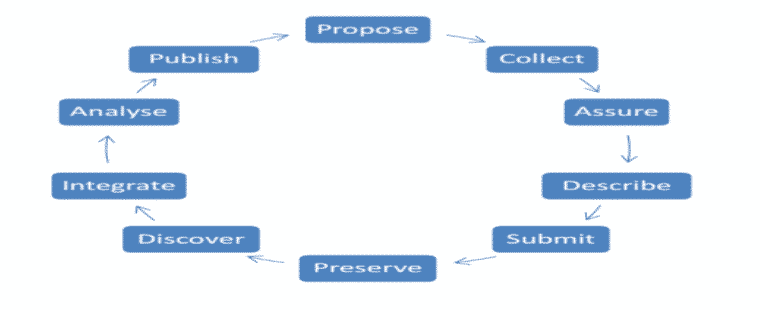Data Management is an executive process that includes acquiring, validating, storing, protecting, and processing important data. Also, to ensure the accessibility, reliability, and timeliness of the data for its users.
Introduction to Data Governance
The Data Governance activities are primarily focused on the exercise of authority and control over the management of data assets. Some of the Data Governance activities are to understand strategic enterprise data needs to develop and maintain the data strategy. Develop and approve data policies, standards, and procedures.
Data governance is best practiced as a partnership between business and IT to gain an understanding of the importance of data as an asset. It is accomplished more effectively as an ongoing program and a continuous improvement process. It also guides each of the data management functions.
Data Steward is a person designated for accountability of quality of data, data integrity roles, and domain values with the assigned subject areas.
Data Management Tools
MS Excel
- Spreadsheet software that tracks data in columns and rows.
- You can perform calculations on data and show graphs You can perform calculations on data and show graphs.
MS Access
- Data is stored in tables that can be related to each other.
- It can be manipulated via Queries Data can be manipulated via Queries.
- It can be entered via Forms and retrieved via Reports.
Other databases (Oracle, SQL Server)
- Data storage and retrieval is much more robust
- Can build custom applications to interact with the data Can build custom applications to interact with the data.
Data Policy
This function refers to the broad framework of guidelines that govern the entire process of data management. It is formed by high-level officials in the organization in need of data management.
Data Ownership
As the name suggests, refers to the clear identification of the owner of the data. Ownership determines who has rights over the management and subsequent use of data.
Data Quality
Data quality is concerned with the datasets aligning with the functions of accuracy, integrity, and ethics bordering on handling data.
Standardization relates to the datasets meeting specified minimum levels of quality. Hence, the different dimensions of data quality are given minimum requirements and standardization requires that these minimum requirements are met.
Data Life Cycle Control
Data Life cycle is concerned with ensuring that the processes that govern the evolution of datasets from the ideas that necessitate the collection of new data. And not relying on already existing data are adhered to according to the laid out data policy. These processes include the specification of the data, data modeling, data processing, data security, audit, the archiving of data. And the probable destruction of the data when it is no longer needed or economical to retain.

Data Audit
It is concerned with ensuring that resources committed to the Data Management throughout the life cycle of the data are expended appropriately and in accordance with the Data Policy, plans, and procedures.
Benefits of Data Management
NGOs, CSOs, the private sector, and even MDAs of the government that make data-driven policies and decisions derive benefits from Data Management. The benefits are important for the successful operations of these organizations.
It ensures that data availed for research or decision-making meets the criteria of completeness, validity, reliability, accuracy, timeliness, confidentiality, integrity, and ethics of research.
Compliance with requirements agreed to by the user of the data which could be a donor agency, research institute, or an NGO requiring the monitoring of the implementation of programs, projects, and policies.
Efficiency gains measured in terms of duration from data management planning to data usage, the monetary cost of getting data ready for use. The quality of the data recorded in the handling of data from its collection till its preparation for use.
Access and security of data is also another benefit guaranteed by Data Management and makes it highly relevant for agencies that work with data on human subjects or other sensitive subjects. Utmost security is necessary and access must be strictly aligned with the requirements of the data used as well as the statutory obligations of the data user.
To read an article about “What is Data Analytics – Introduction & Types | Data Analytics Tools”.



